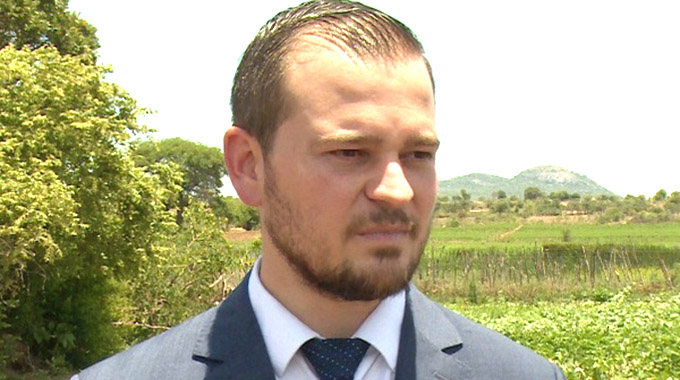Call to invest in fortified food

Nesia Mhaka and Michael Tome
Lands, Agriculture, Water, Climate and Rural Resettlement Deputy Minister Vangelis Haritatos has implored food processors and key stakeholders in the agricultural sector to invest in the bio-fortification initiative and nutritious crops production.
Bio-fortification is a process of breeding crops that are rich in micro-nutrients, such as vitamin A, iron and zinc.
Lack of such nutrients in foodstuffs has been dubbed “hidden hunger”.
According to national statistics, approximately one in every three children suffers from stunted growth, a result of nutrition deficiency.
Addressing delegates at the Food and Agriculture Organisation livelihoods and food security programme event, Deputy Minister Haritatos said it was time food processing firms complemented bio-fortification efforts.
“The time is right to promote such nutrition sensitive value chains in Zimbabwe,” he said. “The orange maize and beans offer several opportunities for processors involved in milling, pre-cooking and canning and production of cereal blends for child feeding.
“Agriculture as a sector has the primary goal of developing nutrition-sensitive agriculture value chains, including for indigenous crops that are better adapted to our local climate and these high-yielding and high nutrient bio-fortified crop varieties will go a long way towards the realisation of food self-sufficiency and surplus.”
Speaking on the sidelines of the event, senior principal director in the Office of the President and Cabinet, Ambassador Mary Mubi, said food was the common identified area where nutrients could be added to curb nutrient deficiency.
She said in the past, Government restricted goitre cases through supplementation of iodine in salt.
“Bio-fortication is a strategy for reaching a wider population,” she said. “Historically, we used to have prevalent cases of goitre and one strategy taken was to put iodine in salt, that is a form of bio-fortification, so already we have that culture in us.”
Britain’s Department for International Development (Zimbabwe) head Ms Annabel Gerry said it was imperative for the country to have a nutrient sensitive agricultural sector and substantial funding had been availed for the programme.
“Nutrition is central to sustainable development goals that all countries, including Zimbabwe, have signed up to,” she said. “This is a programme that is aiming to benefit one million Zimbabweans. The programme started in 2014 going to 2021 and we have committed £72,4 million to the programme.”
The World Bank estimates that Zimbabwe loses over US$24 million annually due to vitamin and mineral deficiencies as hidden hunger affects the productivity of adults and increases the burden on the health sector due to increased diseases burden.










Comments